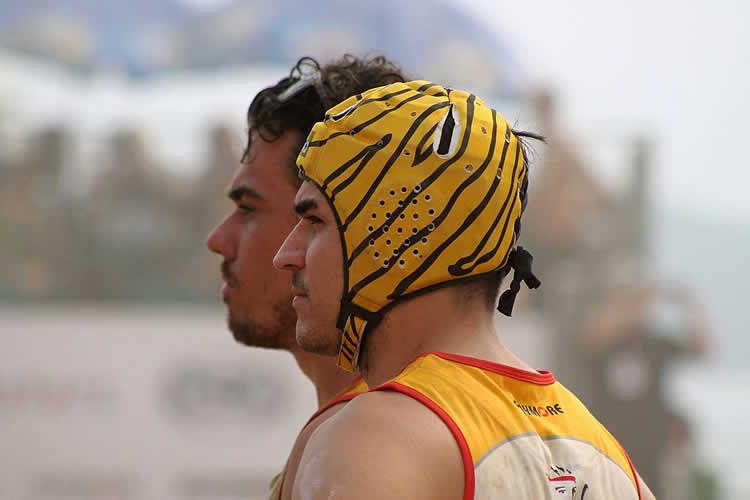Repeated minor trauma to the head and other body parts can lead to early dementia, according to a study by a Massey University health psychology graduate.
Researcher Virginia Westerberg says her master’s study completed last year reinforces recent media coverage in the New Zealand Herald, which highlighted the risks of early onset dementia from traumatic head injuries such as concussion, particularly through contact sports such as rugby.
Concerned by the growing trauma statistics in New Zealand and dearth of research into the consequences, she designed a large-scale study through Massey’s School of Psychology in collaboration with Palmerston North Hospital involving a database of nearly 7,000 cases.
The results showed that a history of traumatic injury (TI) was more frequently found in cases with dementia than in the controls,” Ms Westerberg says. “The findings strongly indicate that the brain is affected by the way the body responds to traumatic injury, both locally – with micro-haemorrhages, local inflammatory response and neuronal death – and systemically, with chronic inflammatory response.”
She found that just over 73 per cent of people with dementia had had a traumatic injury in the past that was significant enough to require admission in the emergency department. Only 26 per cent of the non-dementia controls had a history of trauma. The data didn’t specify whether the injuries were caused by falls, blows, accidents or sporting injury.
Her study highlights the risks of both repeated traumatic injury, as well as the impact of injury to other parts of the body on the brain. Chronic traumatic encephalopathy (CTE) is a type of dementia that is related to the repeated blows to the head that occur in contact sports. CTE affects the bodies of neurons that specialise in memory, language, perception, thought, and attention, she says.
“The conclusion was that the direct and indirect consequences of traumatic injury –not only to the head but also to other body areas, if significant – could constitute a plausible risk factor for the earlier development or faster progression of dementia.”
Mild head injuries common and unreported
Her study showed “the long term effects of repeated mild blows to the head were as exceedingly common as they were unreported and as damaging as a single episode of a higher grade brain trauma.”
She says the first time early dementia and concussion were linked together was when Nigerian-American forensic neuropathologist, Dr Bennet Omalu, performed an autopsy on former Pittsburgh Steelers football player, Mike Webster. The recent film Concussion, starring Will Smith, tells the story of his discovery.
Ms Westerberg, who moved from Barcelona to live in New Zealand seven years ago to join her husband, having almost completed a medical degree in Spain. Unable to repeat the training here, she decided to cross-credit and do further study in her area of interest by exploring the issue of traumatic head injury in sport.

A keen horse rider and Taekwondo practitioner, she has suffered injuries herself and anticipated she would find a strong awareness and knowledge of injury risk and prevention in New Zealand, where contact sports are popular. She was surprised by the lack of interest from various sports organisations, and by the silence that greeted her whenever she approached them about doing research. “So I decided to attack the problem from another angle and instead to look at traumatic injury cases as my starting point,” she says.
She notes that pre-existing or degenerative conditions are excluded from the Accident Compensation Corporation (ACC), as are any kind of illness, psychological conditions related to ageing, and all non-job related injuries that come on gradually.
Future research could provide the solid evidence that a repeated, minor traumatic event could cause organic or functional brain damage leading to progressive cognitive impairment, such as dementia. This could pave the way for such conditions to be covered by ACC, she says.
“For the time being, because there is no treatment or cure for CTE, risk awareness of your sport and injury prevention are vital. Great emphasis is put by most official sports organizations about wearing protective headgear during training and in competitions.”
Ms Westerberg is a member of the Royal Society of New Zealand, the New Zealand Association of Scientists, and the Neurological Foundation of New Zealand.
Source: Massey University
Image Source: The image is adapted from the Massey University press release.






